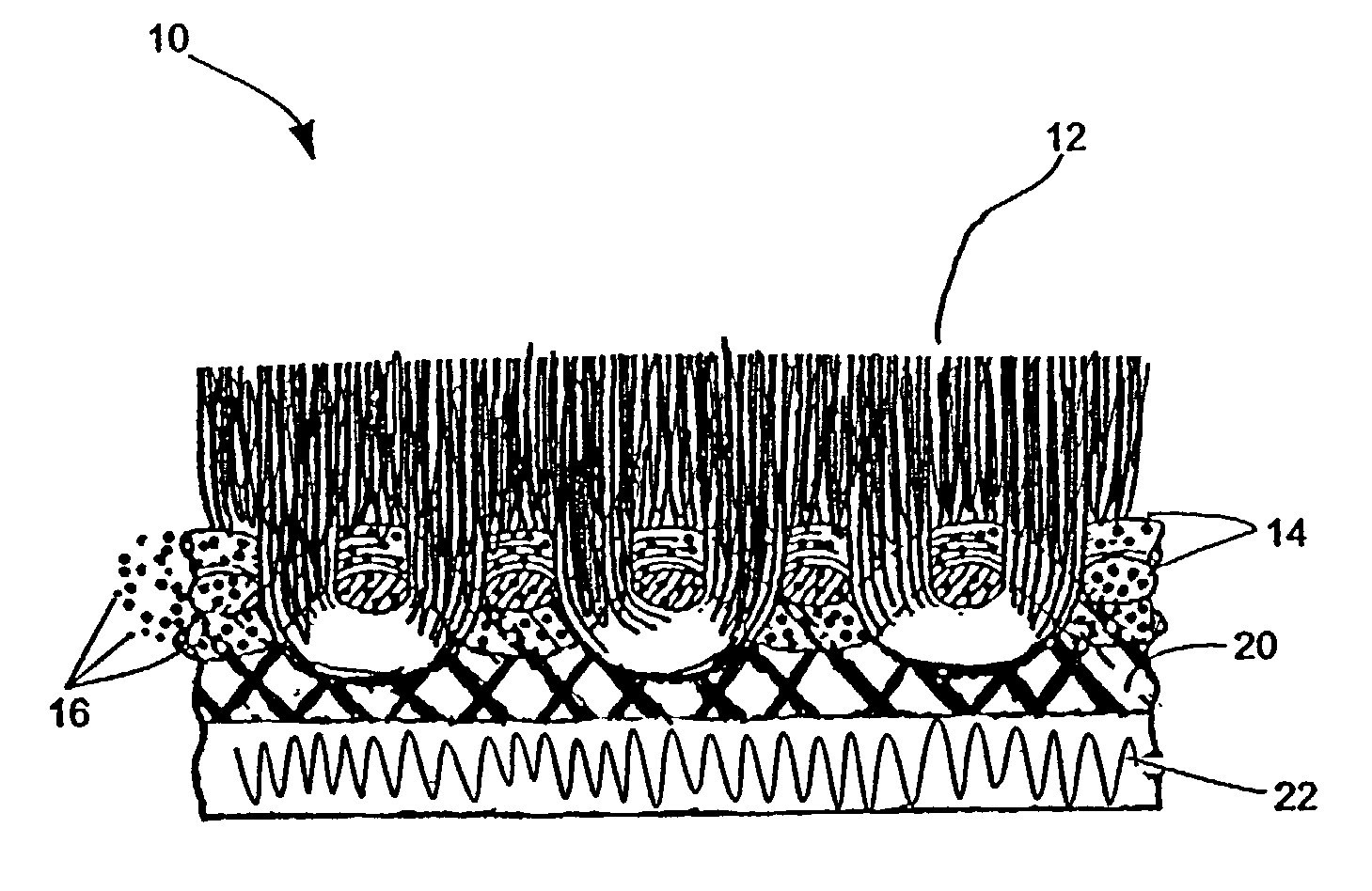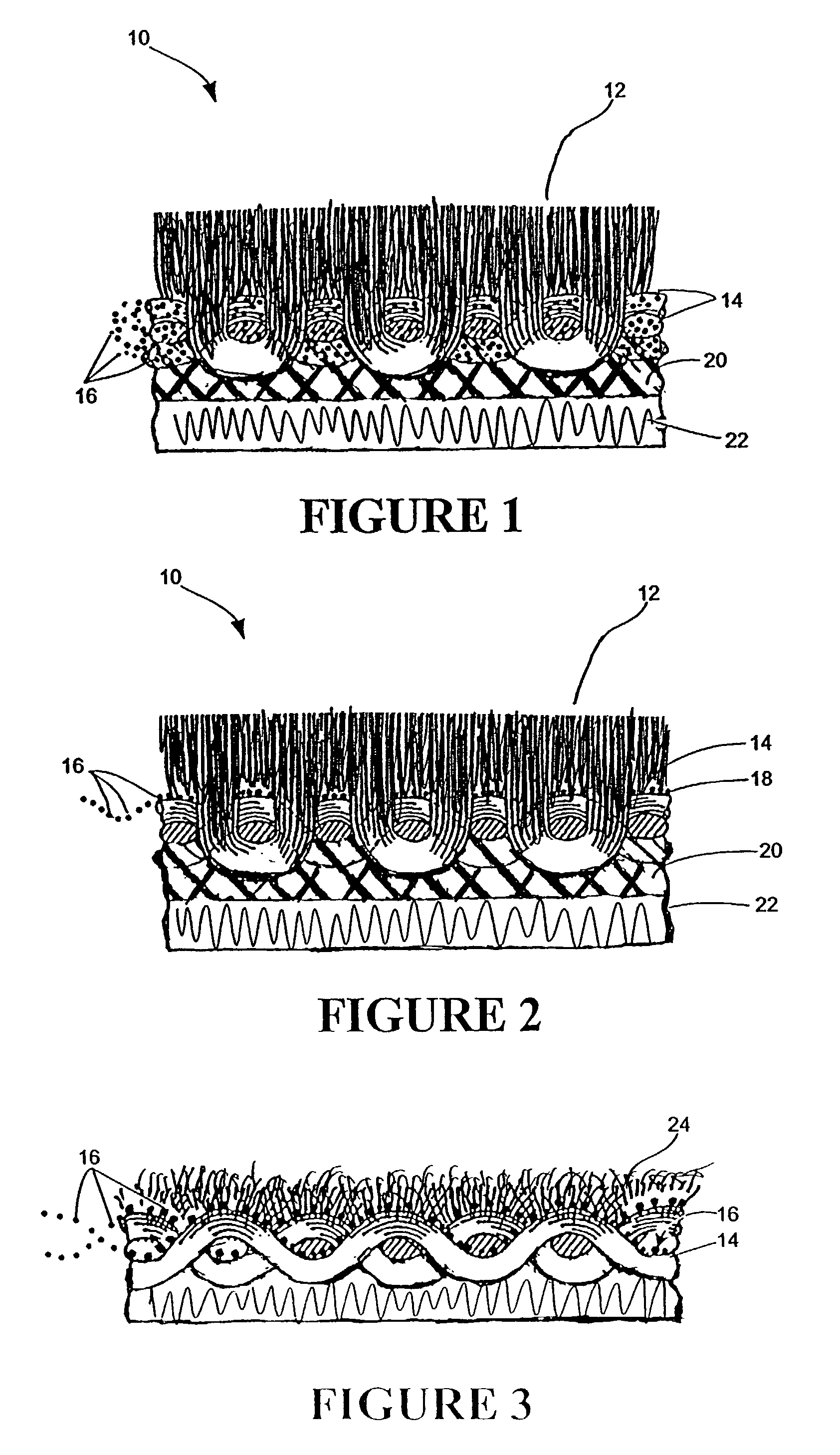Textile products having flame retardant properties and methods of manufacture
a technology of flame retardant properties and textile products, applied in the field of textile products having flame retardant properties and methods of manufacture, can solve the problems of noxious gas emission of nylon fibers, and high cost of decabrome, so as to prevent pvc backcoating, improve the potential for smoke and flame suppression, and reduce the cost
- Summary
- Abstract
- Description
- Claims
- Application Information
AI Technical Summary
Benefits of technology
Problems solved by technology
Method used
Image
Examples
Embodiment Construction
[0024]This invention will now be described more fully with reference to the drawings, showing preferred embodiments of the invention. However, this invention can be embodied in many different forms and should not be construed as limited to the embodiments set forth.
[0025]In general, the textile products of this invention have a flame retardant material, such as intumescent particles coated, screen printed, applied to, dotted onto, incorporated into, or otherwise associated with a primary backing layer. This provides a flame barrier between carpet tufts and the more flammable backcoating.
[0026]FIG. 1 illustrates pile carpet 10 having tufted pile yarns 12 looped through and extending upwardly from a primary backing 14. The primary backing 14 may be formed of natural fibers, such as jute, or of synthetic fibers such as polypropylene, polyethylene, or polyester, for example. The primary backing 14 is associated with intumescent particles 16.
[0027]Intumescent particles 16 may comprise an...
PUM
 Login to View More
Login to View More Abstract
Description
Claims
Application Information
 Login to View More
Login to View More - R&D
- Intellectual Property
- Life Sciences
- Materials
- Tech Scout
- Unparalleled Data Quality
- Higher Quality Content
- 60% Fewer Hallucinations
Browse by: Latest US Patents, China's latest patents, Technical Efficacy Thesaurus, Application Domain, Technology Topic, Popular Technical Reports.
© 2025 PatSnap. All rights reserved.Legal|Privacy policy|Modern Slavery Act Transparency Statement|Sitemap|About US| Contact US: help@patsnap.com


